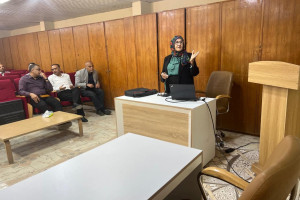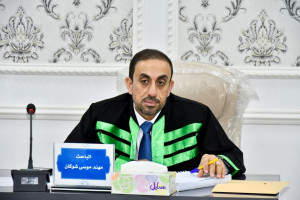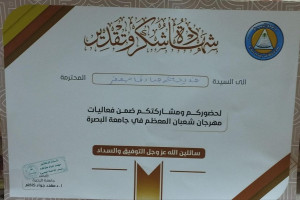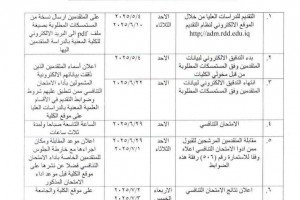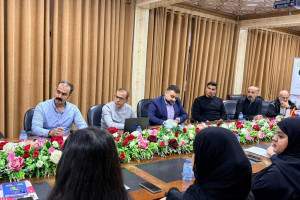
Department of Soil Sciences and Water Resources at the College of Agriculture held a seminar on organic nitrogen transformations, inhibition of borase enzyme activity, and the effectiveness of soil revival in soil treated with different organic sources, chemical pesticides and biocides and their impact on barley growth, delivered by a doctoral student, Abdul Sattar Mohalhal Khalaf, where the effect of four types was studied. Of the agricultural pesticides, they included a fungicide (Difenoconazole 25% EC), an insecticide (Demethoate 40% EC) and a herbicide (Atlants and compared with a biocidal (Tricoderma) in the transformations of organic nitrogen added at different concentrations in sandy mixture soil treated with 5% of organic sources All experimental units were incubated at a temperature of 30 °C ± 2 for periods of 7, 14, 21, 28 and 35 days The effect of study treatments on inhibiting urease enzyme activity and activity of microorganisms was measured for the same time periods. A decrease in the mineralization of organic nitrogen NH4+-N and NO3-N in all study treatments, a decrease in the amount of ammonium and an increase in the amount of nitrate with an increase in the incubation period. It increases the activity of urease enzyme and the effectiveness of soil revival. An agricultural experiment was carried out in pots to show the effect of the study parameters on the concentration of nitrogen, dry weight and nitrogen absorbed in barley plants. The highest rate of dry weight and concentration of nitrogen and nitrogen absorbed in barley plants appeared when adding jet residues. The addition of all pesticides led to a decrease in the dry weight rate and the concentration of nitrogen and nitrogen absorbed.

